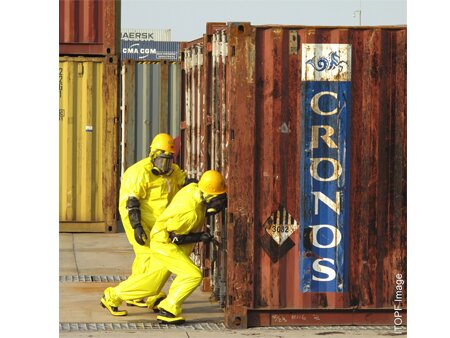EMSA Workshop on HNS Response
7 October 2014

On 1st and 2nd October, ITOPF was pleased to participate in the EMSA (European Maritime Safety Agency) HNS workshop, held at EMSA headquarters in Lisbon and chaired by Berndt Bluhm, Head of Unit, Pollution Response at EMSA.
A total of 28 delegates from EU Member States were present as well as nine representatives from industry (BASF, DOW Chemicals, CEDRE, CEFIC, Braemar Howells, ISU (International Salvage Union) and ITOPF).
The workshop aimed to highlight the key challenges for HNS response from the point of view of the national government agencies, the chemical and salvage industries and R&D institutions. The workshop was also an opportunity for the various delegations to exchange information on recent developments in the field of HNS incident response in their respective countries, as well as progress with on-going projects, such as ARCOPOL, BE AWARE and MAR-ICE Network. The workshop also sought to familiarise the participants with the information services in place, such as MAR-ICE, and to understand their value and limitations.
The workshop centred around a table top exercise with two realistic scenarios run in parallel (one container ship and one bulk carrier) which enabled Member States to evaluate how prepared they are for a significant HNS spill and to take their findings back to their respective government organisations.
"The participation and the outcome of the exercises demonstrated that HNS has become a key subject of concern for the authorities" noted ITOPF's Dr. Annabelle Nicolas-Kopec, "...and it highlighted the willingness of the Member States to stay ahead of the game, before an incident happens. Overall the workshop received well-balanced input from the Member States and the industries, allowing all to share their views and concerns."
ITOPF gave the first talk on recent HNS incidents and concluded the workshop with a talk entitled "The future challenges of HNS response", which summarised all the exchanges, discussions, and conclusions of the workshop.
The three main conclusions ITOPF drew from the workshop were:
(i) the preparedness of national governments requires regular interaction and exercises with industry since effective response to an HNS incident will involve working in partnership with the chemical and salvage industries;
(ii) the rapid exchange of information at the time of an incident is vital for an efficient HNS response hence the routes of communication need to be established well in advance of a spill;
(iii) an HNS incident remains technically the most complex and potentially hazardous accidental spill from a shipping incident and capabilities across Europe to respond are patchy and fragmented.
Categories: HNS, Training & Education
